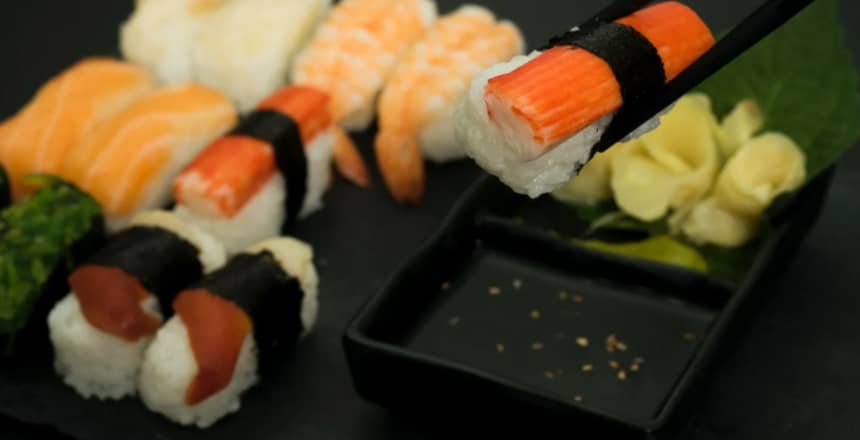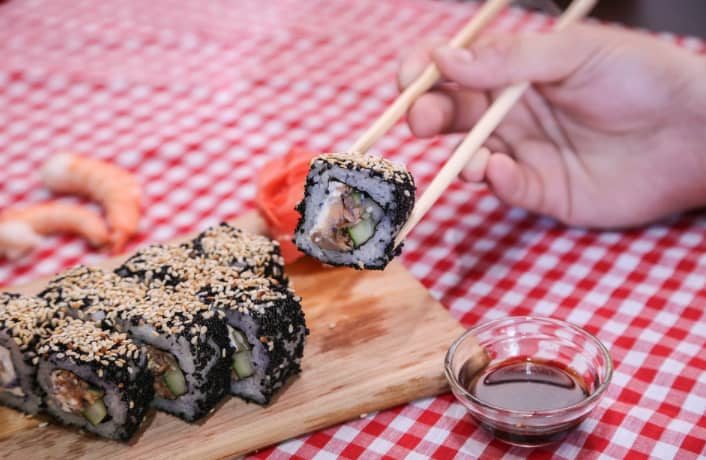Most Common Myths About Sushi

Sushi has spread to the rest of the world from Japan. It has become a popular and elegant food genre that many can’t get enough of. Some reluctant moms are wary of overseas flavors and raw ingredients, but some consider themselves connoisseurs of this Asian heritage. Usually, sushi needs soy sauce, but today, you can always use this substitute for soy sauce. Aside from its popularity, many people still have certain misconceptions about it. Here are some myths about sushi.

People Won’t Like Sushi, If They Don’t Like Fish
“How many times have you heard someone use this phrase to justify why they don’t like sushi? It’s true that even if you don’t like seafood, you’re missing out on most of what the genre has to offer, although there’s plenty to explore. After all, sushi isn’t about fish, it’s about rice. Sushi doesn’t have to include fish or seaweed, although it often does. The term “sushi” refers to the vinegar-soaked rice that is ubiquitous in most rolls.
Cooks in this area must first master the rice before moving on to other components. Many restaurants offer items other than rolls (such as sashimi or simply raw fish) on their sushi menus. However, these menu items are not similar. Sugared egg along with acetate rice (Tamago) or a selection of delicious vegetables wrapped in acetate rice along with different types of delicious sushi is perfect for those who can’t stand that “fishy” taste.
All Sushi Is Raw
If you want to have fish in your sushi, it has to be raw, right? That’s the real thing, the really tasty thing, the ideal thing, right? This may be your opinion, but many chefs and fans of this gastronomic genre would probably disagree. Raw fish may be a delicacy, but it is not the basis of a good roll. That’s because it’s more about great rice than the other substance. If you don’t like sashimi (raw fish), that doesn’t mean you can’t enjoy a wonderful sushi roll.
Fresh Sushi Is Always the Healthiest
Here’s the thing to say about sushi: it was invented as a means of preserving fish. Despite all the wonders of modern plumbing, the fish you’re eating now in your rolls probably wasn’t caught that morning. So many times I’ve heard people say that they don’t trust inland seafood restaurants, that the fish they ate on the coast was the best because it was “fresh.”
The reality, however, is that their favorite fish has probably already taken root and is more than a day old. Allergic diseases, so from the U.S. it is highly unlikely that your fish has swum before today. Tuna is the one exception to the law because it has really clean flesh, but it has probably taken a few days to get to your plate. For optimal flavor, some people brine their ingredients to make the flavor more intense. Their daily influx of seafood is probably as refreshing as the most popular sushi restaurant on the coast.
Eating Sushi Frequently Is Good for Your Health
Most people, especially Asians, believe that eating sushi frequently is good for their health. The truth is this assumption is not that true. Many risks are associated with the amount of neurotoxin contaminated by all open waters of rivers, lakes, and oceans, which many fish contain. Women who are pregnant, nursing or planning a pregnancy, young children, the elderly, or people with weakened immune systems should limit fish intake to only 12 ounces per week. Many types of fish are high in mercury, such as salmon, mackerel, swordfish, and shark. This doesn’t mean avoiding them altogether, but eating them in limited amounts, emphasizing choices along with other species that have less mercury, such as salmon, mackerel, trout, crab, and shrimp.
The dangers of raw or undercooked fish are minimal if the products are handled and stored properly. There are FDA guidelines for your business that require, among other things, freezing fish to maintain an exact period in which germs are killed. But poor management or dishonest vendors can deliver spoiled, germ- or parasite-infected food. Trust a recommended retailer and assume that the vendor will provide high-quality disinfected products. Although eating raw seafood carries a higher risk than eating cooked fish, experts agree that the health benefits outweigh the risks.…

